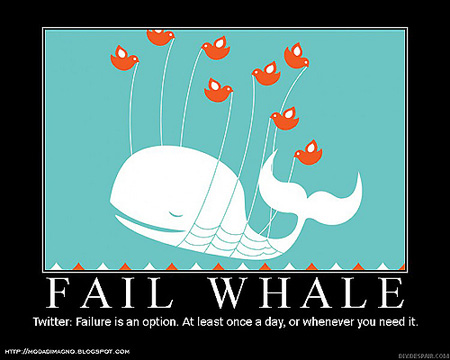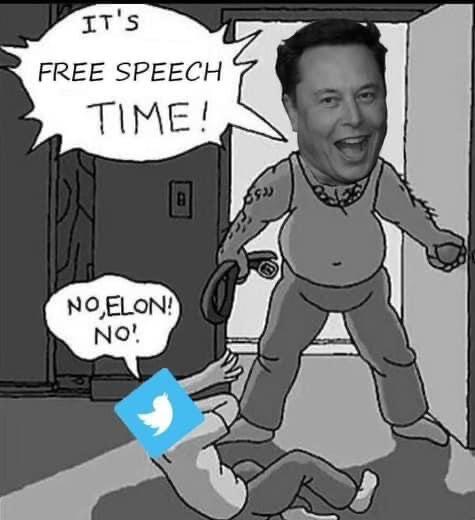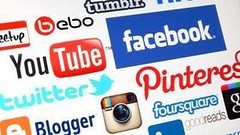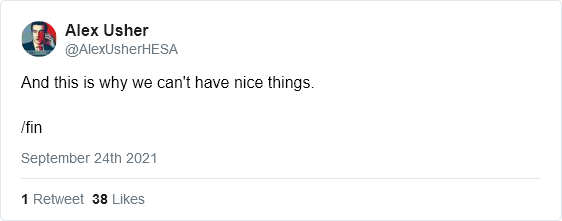I’ve gotten a bit tired of reminding people on social media that almost everything we think we know about the fighting in Ukraine is — to a greater or lesser extent — propaganda by one side or the other. That said, Ukraine’s propaganda efforts have been far more effective than the Russian equivalents. In The Line, Jen Gerson rounds up some of the best-known stories that have flashed across Twitter and other social media platforms since the combat began:
Perhaps it’s simply the inevitable consequence of protracted news overload, but the war in Ukraine feels surreal. Pulling up the news, following Twitter, none of it feels like reality, but rather like we’re all collectively remembering an event that was always destined to happen. Perhaps I’m the only one suffering from this dissociative state? Or perhaps not; is anyone else feeling as if our daily life has taken on this faded quality of a simulacrum?
Maybe this is the inevitable sensation of watching a war play out on Twitter and TikTok. It has a participatory quality that offers the sensation of being a part of the conflict without the dose of necessary, reality-evoking risk.
Did you see the viral video of the Ukrainian babushka demanding the Russian soldier keep sunflower seeds in his pocket so that he leaves behind flowers when he dies? Or the one of the soldiers on Snake Island telling the Russian warship to “go fuck yourself” when asked to surrender? Reportedly, 13 died after that ship blew the station apart — though it appears that this was false and they in fact were taken alive.
Did you watch the Twitter video of Ukrainian Volodymyr Zelensky filming himself on the streets of Kyiv to thwart rumours that he had fled? Or the guy who moved an anti-tank mine from the road with a cigarette drooping out of his mouth?
Did you hear about the Ghost of Kyiv, a mysterious fighter pilot who has allegedly scored more kills than any other in recent memory?
Or the TikTok video of the young woman teaching her contemporaries how to operate an abandoned Russian tank; the stranded artillery towed by Ukrainian farmers; the men stuffing polystyrene into Molotov cocktails to make peasants’ napalm?
Oh, and in case you missed it: an official music video lionizing the Ukrainian drone, Bayraktar.

I can’t assess the reality of any of this — and I presume some or all of it is staged. That’s what propaganda is, after all. All I can do is examine the transparent unreality of it all, to take note of the ephemeral, the narrative. And from here, the Ukrainians are absolutely crushing the propaganda war.
On Monday, David Patrikarakos also came to the same conclusion in UnHerd after viewing the online echoes of the war:
The internet is a chaotic place, but it is nonetheless ruled by a series of iron laws, especially when it comes to what we put on it. Perhaps the most important one is that whatever you post, try to make it visual. Once that’s established it’s about what sort of image will best hoover up those likes and shares and retweets. Well, that’s down to where you are and who your audience is. But as a rule of thumb there are two things that generally never fail: blondes and guns.
Over the past few days, the very brave and very blonde Ukrainian MP Kira Rudik has been tweeting various pictures of herself posing with an AK47. She began last Friday:

What is striking about the photos is not that Rudik posted them: she is a people’s representative in a time of war — it’s exactly the sort of thing she should be posting. What’s so interesting, and smart, is how she did it. Rudik does not pose in a uniform, or even in camouflage fatigues. She does not salute or lift the AK triumphantly; in fact, the way she holds it makes it clear that she’s not used to holding a weapon of any sort. The photo is taken not in a base or even in an office, but clearly in the living room of her home, just by a window that looks out onto a small patio.
The final touch though — and it’s a genius one — is that she doesn’t have shoes on; instead she stands barefoot, her toes painted a delicate pink.
In one sense, this all seems irretrievably amateurish — but that’s the point. Of the many things the internet craves, authenticity is sacrosanct. And this is a model of the genre. The tweet is designed to do two things: first, to show that Ukrainians will stand and fight for their homeland; and second, to humanise those whom we are told will be doing the fighting. And it does this by showing them to be the most ordinary of people; people standing in their bare feet, vulnerable and ordinary — just like civilians across the world. As such, they stand in total contrast to the stormtroopers invading their lands. It’s pink toenails versus mud-encrusted jackboots; smiling mothers versus bearded Chechens — all shorthand for the battle playing out between Ukraine and Russia.
As Kurt Schlichter said, “The first report is always wrong and nobody knows nothing”:
The battle in Ukraine seems to be one of the most covered and worst covered events in history. You cannot spend more than two minutes on social media without crossing paths with a snippet of shaky cell phone footage of a Russian tank burning or some heroic story of sturdy Ukrainian resistance. You have experts on TV trying to tell you what’s happening but no one is actually giving you any real information. Maybe you think the Ukrainians are winning, that their counterattacks are driving out the Russian invaders. There are plenty of sources saying 2800 or 5300 or some other oddly large and specific number of Russian soldiers are dead. All hail the coming victory!
Well, we’ll see.
Don’t believe a damn thing you see or hear right now. I’d like to. I want the Ukrainians to win. But I understand that I, like you, am a target of information operations by Ukrainians, Russians, and even Americans. Get woke to it.
All that exciting footage? What do you know about where it was shot, or when? Nada. Zip. Zero. We’ve seen people trying to pass off simulator footage as real battle footage. We’ve seen explosions and fires without context. What caused them? Who knows when all you have is the label on the video? All those Russian tanks on fire? Well, guess what kind of equipment the Ukrainians use.
I don’t know if the Ukrainians are winning or losing, but I know that a lot of people in the media want them to win. So do I, but simply because I would prefer they send the Russkies packing does not mean that I am blind to what is an obvious and effective propaganda campaign designed to keep the West in Ukraine’s corner. And it has worked, with a few sketchy, wacky exceptions. I am impressed by the information operation designed to get resonant stories out there, like the defiant guardians of Snake Island, the “Ghost of Kyiv”, or that Ukrainian marine who was forced to blow himself up to take out the bridge. It’s like they were designed to appeal to us.
In short, we don’t know what’s happening — for excellent military reasons on both sides — and much of what we’re being told is almost certainly pure fiction. Keep your bullshit filters up and re-calibrate ’em if and when you get genuine information, but good luck on finding any of that in the immediate future.


















